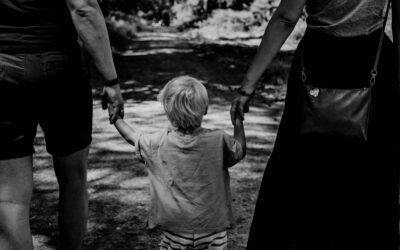
Did you know that half of Americans have less than one month’s salary set aside in case of an emergency? That the average student loan is $29,000, and the average car loan is $30,000? That four in ten Americans are not saving at all for retirement? Do you also know that how we spend our money matters greatly to God – since it is, after all, His money?
After watching our savings dwindle over a number of years, my husband and I decided we needed to take a different approach. Two years ago, we read “The Total Money Makeover” by Dave Ramsey and decided to follow it. The book details Ramsey’s “Seven Baby Steps” to financial freedom. I’ve summarized them below. While I am older and this has benefitted me greatly, I would especially implore you to follow this advice if you are on the younger side – it will make all the difference for you.
Step 1: Create an emergency fund with $1,000 in it.
Step 2: As the Bible notes that the borrower is a slave to the lender (Proverbs 22:7), this step has you pay off all debt (not including the mortgage) using the “debt snowball” method. This means you attack the debt with the smallest balance first, while paying the minimum on the others. Once the smallest balance is paid off, you add the amount you were paying on that debt to the minimum you are paying on the next one, and you pay that one off. And so on. (It may seem like you should pay the debt with the highest-interest rate first, but research shows that paying off debts in order from smallest to largest balance actually works better as you can see progress.)
Let me stop here, as you might not think you can do any of these things due to your situation. Most people actually can start to save a little, and the best way to do this is to develop a budget – something more than half of Americans don’t use. We use an app which helps budget and track every dollar spent. We cut the cord on cable two years ago (and only miss about three channels). Our home phone (yes, we still have one) costs $6.03 per month with no extra long-distance charges. The rare dinner out might be a 3 for $10 deal at a local restaurant. Everything is paid for in cash or by debit card, as people who use these spend far less than those who use credit cards. We drive older cars with no car payments (although I do admit to having feelings of envy for those with newer and nicer vehicles!). Vacations are no longer charged to the credit card and paid later – if we can’t pay out of pocket, we don’t go. While putting our budget together, we made the decision to put God first, so we set aside the first fruits of our labor towards church and several worthy charities. These are just some of the things we have done – you can look into getting an extra job, bringing coffee from home, selling things around your home, and so much more. I have a friend who is so good at couponing that she can bring home an entire shopping cart of groceries for just a few dollars!
Step 3: Add to your emergency fund so that you have three to six months of expenses. (And try not to get too frustrated when you actually have to dip into this for emergencies. That is what it is for.)
Steps 4-7: These include saving 15% of income in a retirement fund, saving for your kid’s college education, and paying off the mortgage. The final step includes building wealth and giving, knowing that God loves a cheerful giver (2 Corinthians 9:7).
While we are still in the midst of walking through the Baby Steps, it has helped our family tremendously, and I hope it helps you as well.



